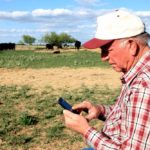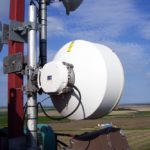
Tag Archives Rural Internet

Survey finds Manitoba’s rural internet, cell service still bad
Results of KAP’s rural connectivity survey show nearly two-thirds of rural Manitobans dissatisfied with internet, cellular access

The wired farm
Will 5G networks kick off a wave of innovation for Canada’s farms?

Home education highlights gaps in rural internet
School divisions are adapting with print materials, phone calls, adjusted expectations

Keystone Agricultural Producers launches rural cell and internet survey
Rural Manitobans miss out on key information and the ability to call for emergency help because of poor cellular coverage, says one KAP director

Cow cams may fall short without tall towers
Failure to connect: Like anything involving video transfer, calving cameras will need good internet and cell service to transmit an image of the calving pen off the farm

Faster internet may bring technology to more farms
In 2017, 84 per cent of farmers were using precision ag tech, but half said their internet wasn’t fast enough

Editorial: Testing the limits of rural Internet

Bridging the digital divide is no easy task
Rural residents are still living life in the slow digital lane

Xplornet buying YourLink

Study says faster Internet speeds not enough
The Rural Development Institute says increasing the culture of use in rural areas is equally important to making faster broadband available


